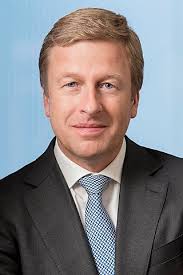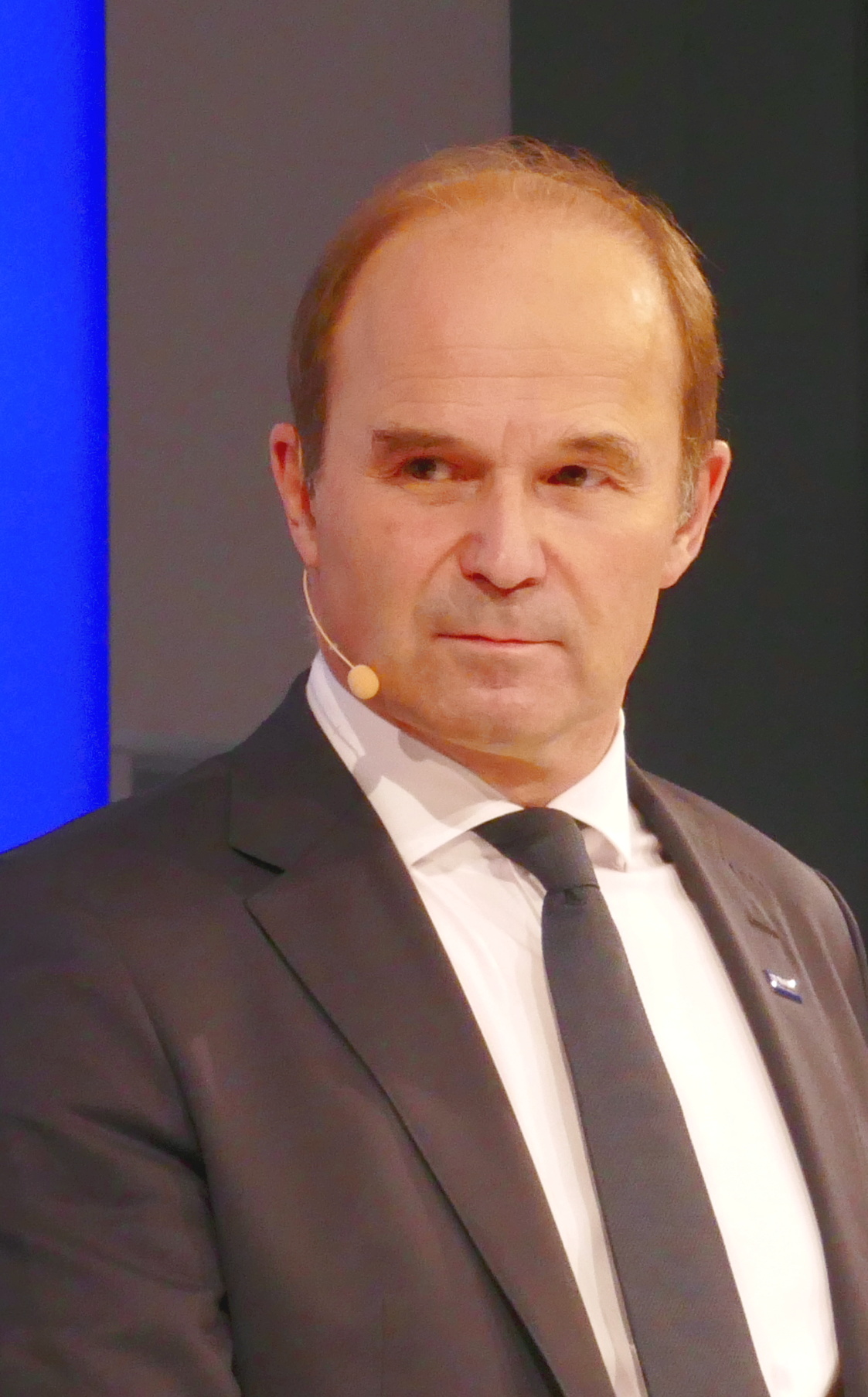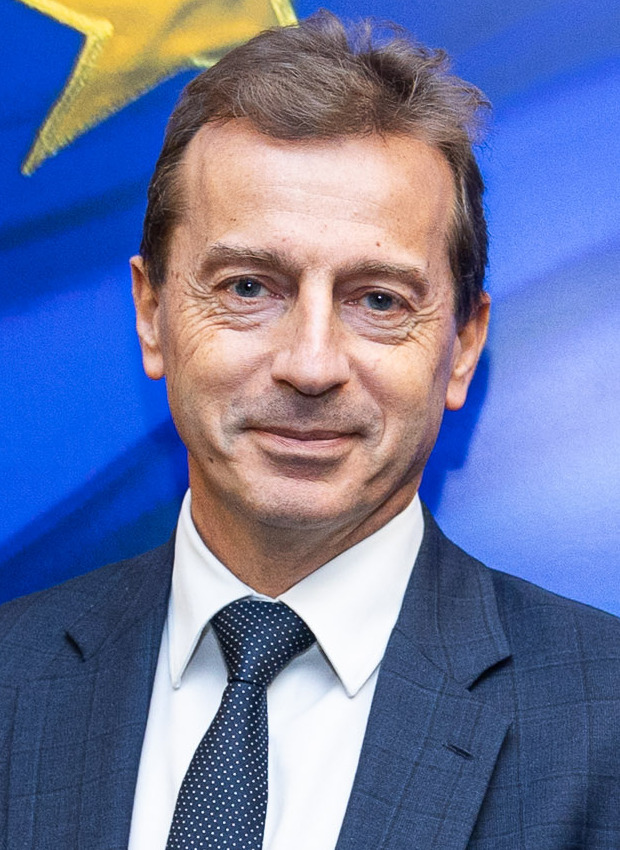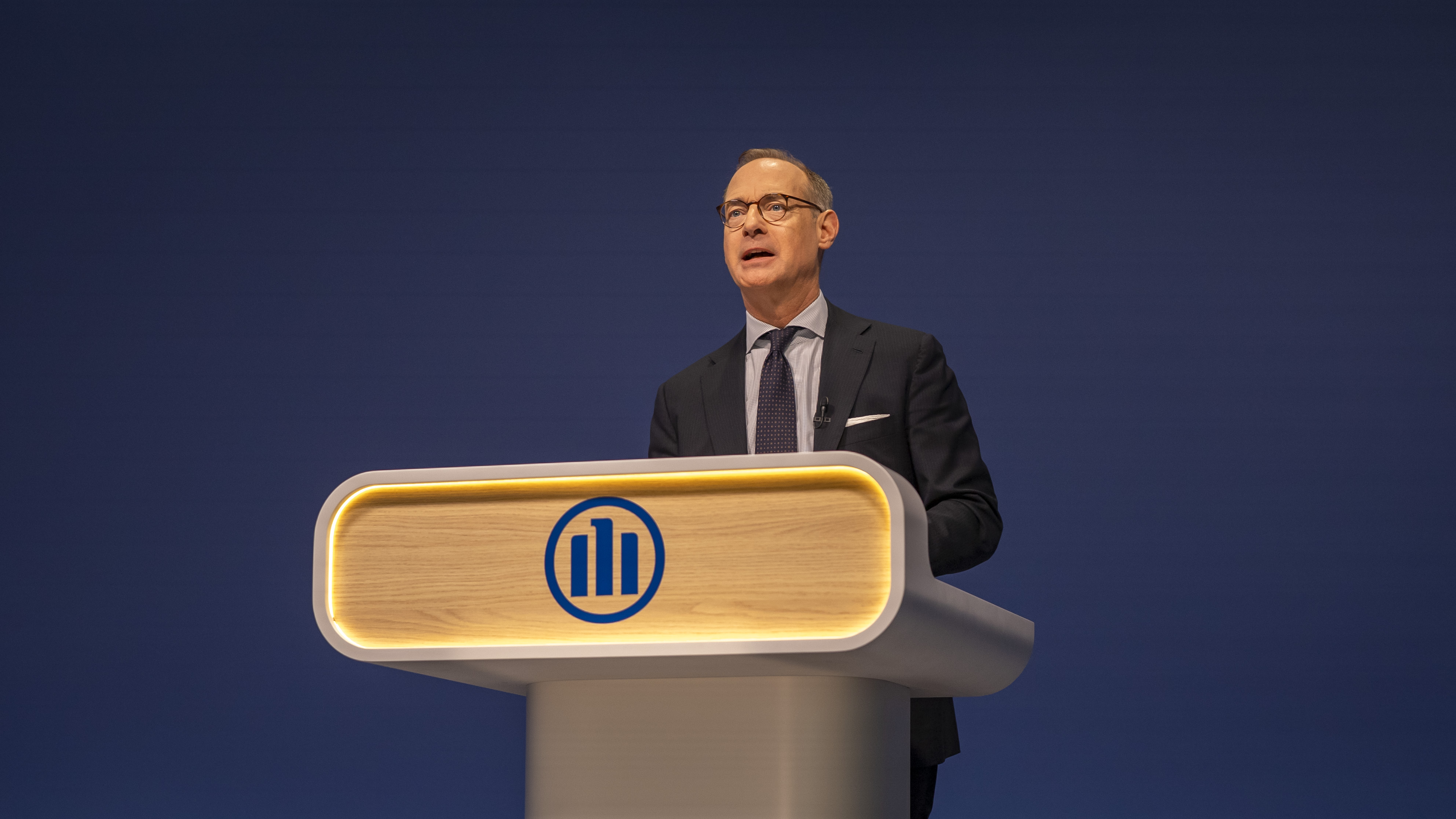Executive Summary: Visionary Leadership in Automotive Evolution
Oliver Zipse, Chairman of the Board of Management at BMW AG since August 2019, has emerged as one of the most influential voices in the global automotive industry's transformation. Under his leadership, BMW has pursued a distinctive "technology-open" strategy that sets the company apart from competitors who have committed exclusively to electric vehicles. This strategic approach, combined with the groundbreaking NEUE KLASSE platform and BMW's global manufacturing footprint, positions the company uniquely in an increasingly fragmented automotive landscape.
Zipse's leadership philosophy centers on market-driven innovation, technological flexibility, and sustainable growth. His vision extends beyond mere electrification to encompass a comprehensive transformation of BMW's business model, manufacturing processes, and market positioning. With over three decades of experience at BMW, Zipse brings deep operational knowledge and strategic acumen to navigate the industry through unprecedented change.
Leadership Journey: From Engineer to Global CEO
Born in Heidelberg in 1964, Oliver Zipse's journey to BMW's helm began with a solid foundation in engineering. After studying mechanical engineering at Technische Universität Darmstadt, where he graduated in 1991, Zipse joined BMW as a trainee. His career trajectory reflects a unique blend of technical expertise and strategic leadership capabilities that would prove essential for leading BMW through industry transformation.
Zipse's early career at BMW spanned various critical functions including development, production, and strategic planning. His international experience includes a formative period managing MINI's Oxford plant from 2007 to 2008, where he gained valuable insights into global manufacturing operations and brand management. This experience proved instrumental in shaping his understanding of BMW's multi-brand portfolio and global market dynamics.
His appointment to BMW's board of management in May 2015 marked a significant milestone, recognizing his contributions to the company's operational excellence and strategic initiatives. During this period, Zipse played a crucial role in expanding BMW's production network, including key investments in Hungary, China, and the United States. These strategic expansions would later prove vital for BMW's global competitiveness and supply chain resilience.
When Zipse assumed the role of Chairman of the Board of Management in August 2019, he inherited a company at a critical juncture. The automotive industry was grappling with multiple disruptions: electrification mandates, digitalization demands, changing consumer preferences, and emerging mobility services. His leadership approach combined operational rigor with strategic flexibility, enabling BMW to navigate these challenges while maintaining its premium positioning and financial performance.
Strategic Vision: The NEUE KLASSE Revolution
At the heart of Oliver Zipse's strategic vision for BMW lies the NEUE KLASSE platform, representing the most significant technological leap in the company's modern history. This comprehensive approach to electric mobility goes far beyond traditional vehicle electrification, encompassing fundamental changes in architecture, manufacturing, and user experience. The NEUE KLASSE embodies Zipse's philosophy of "electric, fully digital, and sustainable" mobility solutions.
The NEUE KLASSE platform introduces sixth-generation battery technology that delivers substantial improvements in key performance metrics. With 30% more range, 30% faster charging capabilities, and quantum leaps in energy density, these batteries represent a significant competitive advantage. Zipse's decision to develop these technologies in-house reflects his commitment to maintaining BMW's technological independence and innovation leadership.
Manufacturing strategy forms another crucial component of the NEUE KLASSE vision. The specially-built plant in Debrecen, Hungary, represents BMW's most advanced manufacturing facility, designed specifically for electric vehicle production. This facility will launch the first NEUE KLASSE X model in late 2025, followed by a sporty sedan from BMW's Munich plant. This dual-location strategy demonstrates Zipse's approach to leveraging BMW's global manufacturing network while optimizing production efficiency.
The digital integration aspect of NEUE KLASSE reflects Zipse's understanding that future automotive success depends on seamless connectivity and user experience. The platform incorporates advanced driver assistance systems, over-the-air update capabilities, and integrated mobility services. This comprehensive approach positions BMW to compete not just with traditional automotive manufacturers but also with technology companies entering the mobility space.
Sustainability considerations permeate every aspect of the NEUE KLASSE strategy. Zipse has committed BMW to achieving carbon neutrality across its entire value chain, from raw material extraction to end-of-life recycling. This holistic approach to sustainability reflects his understanding that environmental responsibility has become a fundamental business imperative, not merely a marketing strategy.
Technology-Open Market Strategy: Flexibility as Competitive Advantage
Oliver Zipse's most distinctive contribution to automotive strategy may be his advocacy for a "technology-open" approach. Unlike competitors who have committed exclusively to electric vehicles, Zipse maintains that markets evolve at different paces, requiring technological flexibility to maximize opportunities across all regions and segments. This strategy has proven prescient as global EV adoption has varied significantly by market and consumer segment.
The technology-open strategy encompasses multiple powertrain technologies: internal combustion engines, plug-in hybrids, battery electric vehicles, and from 2028, hydrogen-powered vehicles. This comprehensive approach allows BMW to respond to varying market conditions, regulatory requirements, and consumer preferences across different global markets. Zipse's argument that "technology openness means following the markets" reflects deep understanding of automotive industry dynamics.
Market performance data supports Zipse's strategic approach. While some EV-only manufacturers have experienced significant sales decreases, BMW's battery electric vehicles have maintained growth momentum, with nearly 300,000 BEVs sold by September 2024, representing a 19% increase year-over-year. This performance demonstrates the effectiveness of offering customers choice while building electric vehicle capabilities.
The strategy also provides BMW with greater resilience against market volatility and regulatory uncertainty. As various countries and regions implement different timelines for internal combustion engine phase-outs, BMW's diversified powertrain portfolio allows the company to adapt to changing requirements without compromising market position or financial performance.
Zipse's technology-open approach extends beyond powertrains to encompass manufacturing flexibility, supply chain diversification, and market adaptation strategies. This comprehensive flexibility has enabled BMW to maintain strong performance during periods of significant industry disruption, including semiconductor shortages, supply chain constraints, and varying EV adoption rates.
Market Impact: Financial Performance and Global Positioning
Under Oliver Zipse's leadership, BMW has demonstrated remarkable financial resilience and market performance despite significant industry headwinds. The company's financial metrics reflect the effectiveness of his strategic approach and operational excellence initiatives. BMW's Group EBT margin of 10.9% consistently outperforms the strategic target of 10%, demonstrating the company's pricing power and operational efficiency.
BMW's global market positioning has strengthened during Zipse's tenure, particularly in the premium segment. The company's 4.1% global BEV market share represents significant progress in electric vehicle adoption while maintaining profitability. This balanced approach contrasts with competitors who have sacrificed profitability for market share or struggled with EV transition costs.
The company's regional performance demonstrates the effectiveness of BMW's global strategy. Strong performance in China, steady growth in Europe, and resilient results in North America reflect BMW's ability to adapt to diverse market conditions. Zipse's emphasis on local production capabilities and market-specific strategies has proven crucial for maintaining competitive positioning across regions.
BMW's luxury segment performance under Zipse has been particularly noteworthy. Rolls-Royce has achieved record performance levels, while BMW's core brand has maintained premium positioning despite increased competition. This success reflects Zipse's understanding that luxury automotive success depends on brand heritage, product excellence, and customer experience, not merely technological innovation.
Investment in future technologies continues at unprecedented levels under Zipse's leadership. BMW's R&D and investment activities exceeded nine billion euros in 2024, representing peak investment levels that position the company for long-term competitiveness. This investment strategy demonstrates Zipse's commitment to technological leadership while maintaining current business performance.
Environmental performance metrics also reflect BMW's market impact under Zipse's leadership. The company significantly outperformed European CO2 fleet targets by more than 30 grams, demonstrating that environmental responsibility and business success can align effectively. This achievement supports Zipse's argument that technology diversity can achieve environmental objectives more effectively than single-technology approaches.
Industry Influence: Thought Leadership and Strategic Vision
Oliver Zipse's influence extends far beyond BMW's operational boundaries to shape broader automotive industry discourse and strategic thinking. His advocacy for technological diversity and market-driven innovation has influenced industry debates about electrification timelines, manufacturing strategies, and sustainable mobility solutions. Major industry forums regularly feature Zipse's perspectives on automotive transformation and future mobility trends.
Zipse's thought leadership on hydrogen technology has been particularly influential. His commitment to launching hydrogen-powered vehicles from 2028 demonstrates belief in hydrogen's potential as a complementary technology to battery electric vehicles. This position has encouraged broader industry discussion about hydrogen applications, particularly for commercial vehicles and long-distance transportation.
His advocacy for manufacturing excellence and in-house capability development has influenced industry approaches to supply chain management and technological independence. Zipse's emphasis on controlling critical technologies, particularly battery development and software integration, has become increasingly relevant as supply chain vulnerabilities have emerged across the industry.
Sustainability leadership represents another area of significant industry influence. BMW's comprehensive approach to carbon neutrality, encompassing the entire value chain, has established benchmarks for industry sustainability practices. Zipse's integration of environmental objectives with business strategy demonstrates practical approaches to achieving climate goals while maintaining commercial viability.
International industry organizations frequently seek Zipse's participation in strategic discussions about automotive regulation, trade policies, and technology standards. His balanced approach to policy advocacy, emphasizing market mechanisms over regulatory mandates, has influenced policy discussions in multiple jurisdictions.
Future Outlook: Strategic Priorities and Long-term Vision
Looking ahead, Oliver Zipse's strategic priorities for BMW encompass multiple dimensions of automotive transformation. The successful launch and scaling of NEUE KLASSE vehicles represents the immediate priority, with implications for BMW's competitive positioning in the electric vehicle market. The company's target of achieving 50% electric vehicle deliveries before 2030 requires careful orchestration of product launches, manufacturing capabilities, and market development.
Technology development priorities extend beyond electrification to encompass autonomous driving capabilities, connected services, and mobility solutions. Zipse's vision for BMW includes transformation from a traditional automotive manufacturer to a comprehensive mobility provider, offering integrated transportation solutions that leverage BMW's premium brand positioning and technological capabilities.
Manufacturing strategy evolution continues to focus on flexibility, sustainability, and efficiency. The success of the Debrecen facility will inform future manufacturing investments and technology deployment. Zipse's commitment to regional production capabilities suggests continued expansion of BMW's global manufacturing footprint, particularly in emerging markets with growth potential.
Sustainability initiatives will intensify under Zipse's leadership, with comprehensive carbon neutrality goals requiring fundamental changes across BMW's operations and supply chain. These initiatives extend beyond regulatory compliance to encompass competitive differentiation and brand positioning in increasingly environmentally conscious markets.
Partnership and alliance strategies represent another key focus area. BMW's collaboration with other manufacturers, technology companies, and research institutions reflects Zipse's understanding that automotive transformation requires collaborative approaches to technology development and market creation. These partnerships will likely expand as BMW pursues opportunities in areas such as autonomous driving, mobility services, and sustainable materials.
Key Takeaways: Leadership Lessons and Strategic Insights
Oliver Zipse's leadership at BMW offers valuable insights for executives navigating industry transformation. His technology-open approach demonstrates the importance of strategic flexibility in uncertain environments. Rather than committing exclusively to single technologies or strategies, Zipse has maintained options while building capabilities across multiple domains.
The integration of sustainability with business strategy represents another crucial lesson. Zipse has shown that environmental responsibility can enhance rather than compromise business performance when properly integrated with operational excellence and market strategy. This approach offers a template for other leaders seeking to balance stakeholder expectations with commercial objectives.
Investment in core capabilities, particularly technology development and manufacturing excellence, has proven essential for maintaining competitive positioning during industry transformation. Zipse's commitment to in-house capability development, even when external alternatives exist, demonstrates the importance of technological independence in strategic industries.
Global market strategy requires balancing standardization with local adaptation. BMW's success under Zipse reflects careful attention to regional market requirements while leveraging global scale advantages. This balance becomes increasingly important as markets develop at different rates and regulatory frameworks diverge.
Finally, Zipse's approach demonstrates that successful transformation requires long-term vision combined with operational excellence. The NEUE KLASSE strategy represents multi-year investment and development, while current business performance maintains the financial resources necessary to fund future initiatives. This balance of present performance and future preparation offers important lessons for leaders in transformation-intensive industries.





